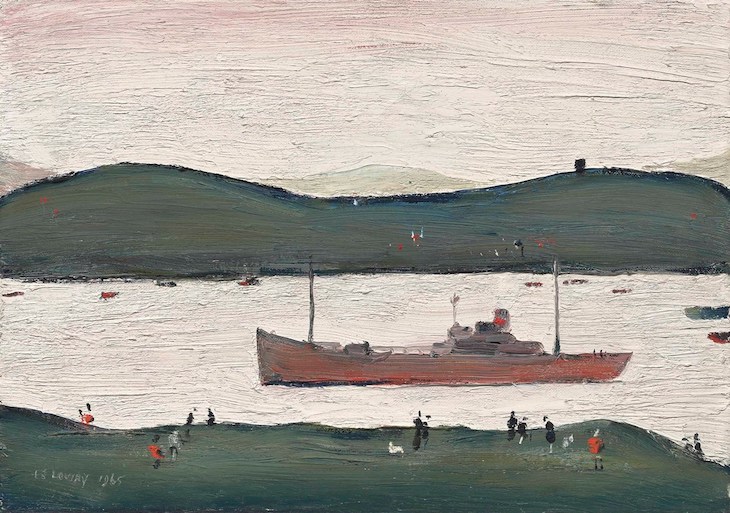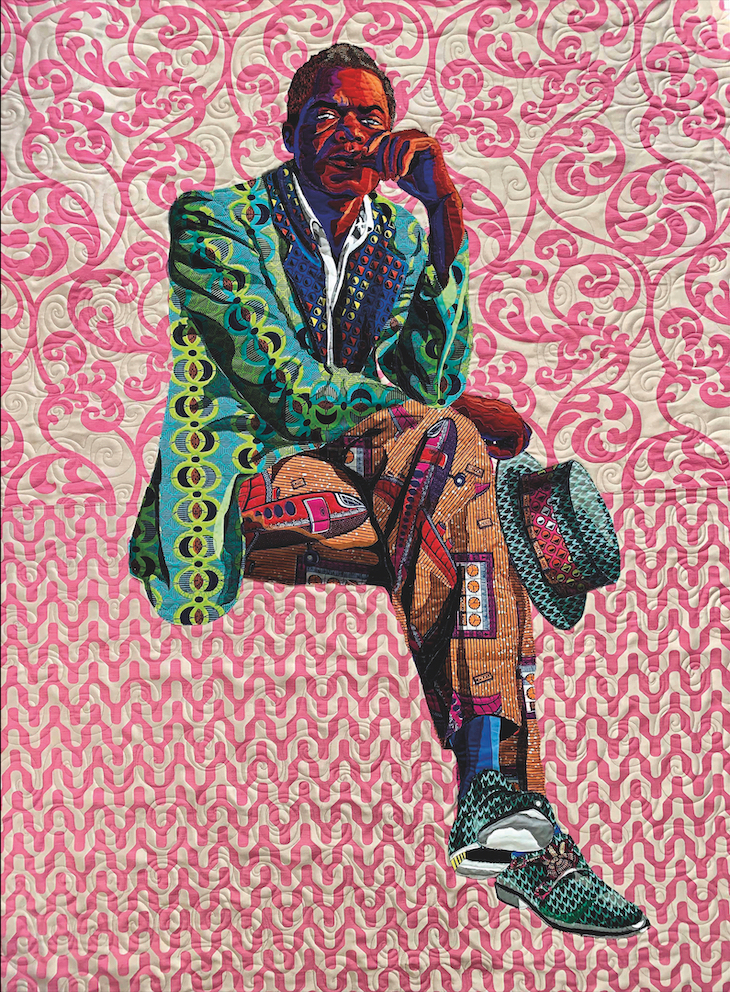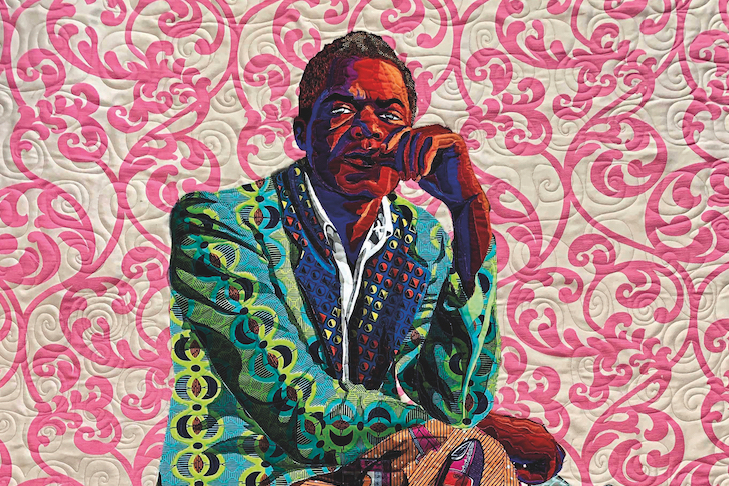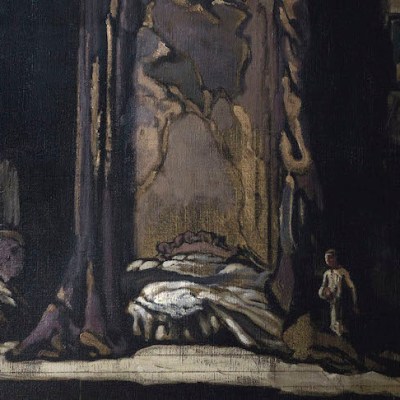Frieze Week has long been the busiest spell in the London art calendar, with Frieze London and Frieze Masters (3–6 October) joined by a host of major gallery exhibitions across the city. This year there is more jostling for attention than ever; for the first time it coincides with the British Art Fair – formerly the 20/21 British Art Fair; Robert and Johnny Sandelson want to integrate more closely with Frieze Week after taking ownership of the fair in early 2018.
She Did Not Turn (1974), David Inshaw. Redfern Gallery at the British Art Fair

The fair returns to the Saatchi Gallery in Chelsea after a successful revamp last year, with 50 dealers congregating to present the best of modern and contemporary British works. There are a number of special displays; Gavin Turk co-curates an exhibition on the Young British Artists, while there is a solo show, curated by Alan Wheatley, of work by the Scottish painter, musician and mystic Alan Davie – it includes the elliptical Priest of the Red Temple (1956), completed at a transitional moment in Davie’s career as he exchanged gestural abstraction for cryptic magical emblems. Myth and mystery also haunt the work of David Inshaw, the subject of a solo booth at the Redfern Gallery; look out for She Did Not Turn (1974), one of a suite of paintings Inshaw made about his relationship with his one-time partner Gillian Pollard, who is also at the heart of The Badminton Game (1973) in the Tate. Among the exhibitors in the main section, Richard Green brings a vivid study of cherry blossom by Wynford Dewhurst, sometimes called Manchester’s Monet, while Clarendon Fine Art brings a river scene by L.S. Lowry, in which nostalgia weighs heavily on a spare palette of rose-tinted creams and mossy greens.
A River Scene on the Clyde (1965), L.S. Lowry. Clarendon Fine Art at British Art Fair

October has become a key month for contemporary African art in London, with a new addition to the scene this year. South Africa’s Goodman Gallery, which has played a crucial role in promoting African artists since the days of apartheid, is opening its first space outside the country, to enhance the reach of its roster of distinguished artists. The inaugural exhibition at its Cork Street premises (3 October–8 November) brings together work by Carrie Mae Weems, Yinka Shonibare, William Kentridge, and the late David Goldblatt, among others, in an investigation of collective memory and healing in the postcolonial era. At Somerset House, 1–54 Contemporary African Art Fair returns for its seventh edition from 3–6 October; the fair continues to grow in stature, with a host of special projects, including a first UK solo exhibition for Mary Sibande (3 October–5 January 2020), who constructs an alter ego through photographs and sculptures to address representations of the female body in post-apartheid South Africa. The photographic archives of Michel ‘Papami’ Kameni, who documented the rapid transformation of social life in 1960s Yaoundé, are on display for the first time, courtesy of Studio Kameni. Tate’s Kerryn Greenberg directs the talks programme, which this year focuses on the legacy of the late Bisi Silva, founder of the Center for Contemporary Art in Lagos.
I Am Not Your Negro (2019), Bisa Butler. Claire Oliver Gallery at 1–54 Contemporary African Art Fair

In the main section of the fair, look out for Bisa Butler’s elaborate quilt tribute to James Baldwin at Claire Oliver gallery, and, at TAFETA Gallery, the Nigerian-American artist Victor Ekpuk, whose beautifully intricate paintings and drawings stem from his studies of nsibidi – an ideographic script from the Cross River region, of south-eastern Nigeria.



